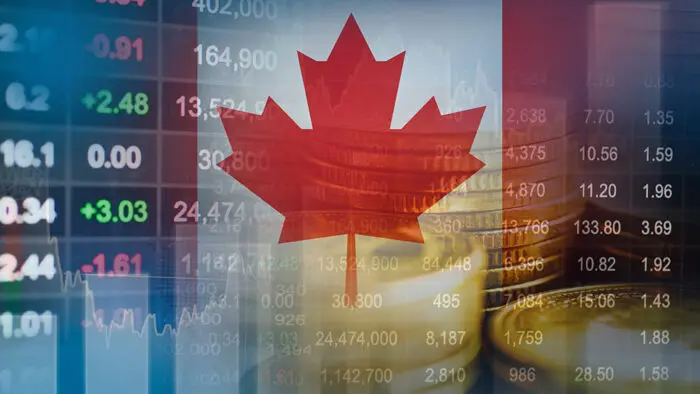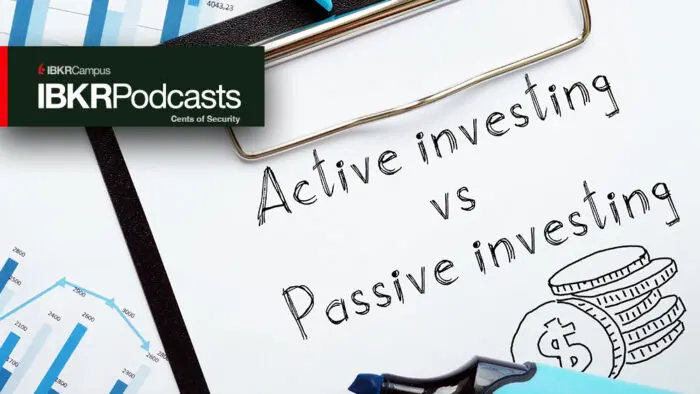Key takeaways
Four main types of inflation expectations
Inflation expectations are what people think inflation will be in the future, but “people” can be consumers, business owners, economists, or even markets.
Short-term versus long-term expectations
The conventional wisdom is that a rise in short-term inflation expectations can be tolerated so long as longer-term inflation expectations are well-grounded.
Remaining questions on inflation
Will the Federal Reserve tolerate medium-term inflation expectations not being well-anchored? And what influences inflation expectations?
The word on everyone’s lips these days is “inflation.” I personally haven’t heard so many references to inflation since I was a young girl wearing bell bottoms and listening to Bee Gees albums. These days, many of the questions touch on expectations. Many clients are confused by the fact that inflation data shows elevated prices, but the Federal Reserve keeps insisting that inflation is transitory because expectations are “well-anchored.” So I thought I would try to answer what inflation expectations are and what role they play in monetary policy for central banks.
Four main types of inflation expectations
Simply put, inflation expectations are what people think inflation will be in the future. “People” can be consumers, business owners, economists, or even markets, and there are a variety of different ways to measure those expectations:
- Consumer expectations. There are a number of survey-based gauges of consumer inflation expectations. A commonly used one comes from the University of Michigan, which each month provides expectations for both the one year ahead and five years ahead. The Federal Reserve Bank of New York also conducts a monthly Survey of Consumer Expectations, which provides inflation expectations for the one year and three years ahead.
- Business expectations. There are also some survey measures of business inflation expectations. For example, the Federal Reserve Bank of Atlanta measures business inflation expectations by surveying firms — but only in its district. Another survey, the Survey of Firms’ Inflation Expectations (SoFIE), was created rather recently — in 2018 — but queries a large group of chief executive officers from all around the United States. SoFIE provides information on business leaders’ inflation expectations for the year ahead, as well as long-term inflation expectations, perceptions of recent inflation rates, inflation uncertainty, and even belief about the Federal Reserve’s inflation target. The survey covers firms in both the manufacturing and services sectors. One drawback is that the survey is only performed quarterly.
- Economist expectations. There are many surveys conducted of professional forecasters. The Federal Reserve Bank of Philadelphia conducts a quarterly Survey of Professional Forecasters, which provides economists’ assessments of future inflation, both short-term and long-term. The European Central Bank also conducts a quarterly Survey of Professional Forecasters about inflation expectations for the short and medium term.
- Market expectations. The market’s views are far more up-to-the-minute than survey-based inflation expectations, as they are based on financial instruments. For example, we can interpret the market’s expectations for inflation over various time periods by looking at the breakeven inflation rate. This is the spread — or difference — between the yield on Treasuries and the yield on Treasury Inflation Protected Securities (TIPS) for the same maturity. (TIPS were created in 1997 to offer an asset class specifically designed to help investors attempt to hedge against inflation). There are of course other market-based gauges of inflation expectations. The Federal Reserve Bank of Cleveland — which has a Center for Inflation Research — has developed a complicated inflation expectations model that utilizes both markets and surveys, relying on Treasury yields, inflation data, inflation swaps and inflation expectations surveys.
Why do inflation expectations matter?
These expectations are important because central banks believe they can influence decisions that impact the economy. I like the simple explanation provided by the Federal Reserve Bank of Cleveland: “Inflation expectations are what people expect future inflation to be, and they matter because these expectations actually affect people’s behavior. It’s easy to understand how things in the past impact what I do today. Expectations about the future can also impact what I do today. For example, I may not buy a house, I may not invest in a piece of equipment or expand my business, or I might do it all, depending on my expectations.”1
And it’s not just about inflation expectations influencing a decision on whether to buy a house. Academics such as Edmund Phelps and Milton Friedman believed that if employees expect higher inflation, they would demand higher wages, which would in turn cause companies to raise prices. This would create an ugly phenomenon called the wage-price spiral. A case in point is the 1970s, when inflation expectations became completely unglued. And that’s why inflation expectations play an important role in the decision-making of many central banks, including, of course, the Fed.
But there’s an important difference between short-term and longer-term inflation expectations. The conventional wisdom is that a rise in short-term inflation expectations can be tolerated by central bankers so long as longer-term inflation expectations are well-grounded, as that would be unlikely to alter consumer and business behavior.
Fed Chair Jay Powell asserts that longer-term inflation expectations are well-anchored because, even though consumers expect inflation to be quite elevated in the year ahead, they expect it to be closer to the Fed’s target in the five years ahead. The preliminary October readings for University of Michigan consumer inflation expectations for the one year ahead is 4.8% and for the five years ahead is 2.8% — still above the Fed’s inflation target but well below short-term inflation expectations.2 Other gauges of inflation expectations have also indicated that longer-term expectations are better anchored than in the short run, although still high.
Remaining questions on inflation
But many questions remain about inflation expectations. For one, will the Fed tolerate medium-term inflation expectations not being well-anchored? The Federal Reserve Bank of New York’s Survey of Consumer Expectations shows medium-term inflation expectations rose to 4.2% in September — which is a series high.3 That suggests that ‘transitory’ inflation might last three years or more. At this juncture, the Fed seems willing to tolerate higher medium-term inflation expectations so long as they remain well-anchored in the longer run, but we will want to follow this closely. I should note that the same New York Fed Survey shows five-year inflation expectations at the same level they were prior to the pandemic, which I believe makes a compelling case for the view that longer-term expectations remain well-anchored.
And which inflation expectations does the Fed care about most? It seems that the Fed cares about all of them. In fact, the Fed recently developed an Index of Common Inflation Expectations (CIE) which includes 21 different measures of expectations including consumer surveys, economists’ forecasts and market-based indicators. Fed Vice Chair Richard Clarida has even referenced this index, saying that he is following it closely.
And what influences inflation expectations? The reality is that relatively little has been explored about the drivers of inflation expectations, especially in the long run. I believe confidence in the Fed’s ability to control inflation certainly plays a role; and so perhaps a taper announcement soon could help bolster confidence in the Fed’s ability to maintain inflation near its target goal over the longer term. Conversely, I suspect scary headlines could play a very significant role, which does not bode well for keeping longer-term expectations well anchored.
I look forward to addressing more about inflation expectations in an upcoming blog.
Footnotes
1 Source: Federal Reserve Bank of Cleveland, May 28, 2019
2 Source: University of Michigan, Oct. 15, 2021
3 Source: Federal Reserve Bank of New York, Oct. 12, 2021
—
Originally Posted on October 18, 2021
Understanding Inflation Expectations and Why They Matter by Invesco US
Important information
NA9770
This does not constitute a recommendation of any investment strategy or product for a particular investor. Investors should consult a financial professional before making any investment decisions.
Past performance does not guarantee future results.
All investing involves risk, including the risk of loss.
Tapering is the gradual winding down of central bank activities that aimed to reverse poor economic conditions.
An inflation swap is a transaction where one party transfers inflation risk to a counterparty in exchange for a fixed payment.
The opinions referenced above are those of the author as of Oct. 18, 2021. These comments should not be construed as recommendations, but as an illustration of broader themes. Forward-looking statements are not guarantees of future results. They involve risks, uncertainties and assumptions; there can be no assurance that actual results will not differ materially from expectations.
Disclosure: Invesco US
This does not constitute a recommendation of any investment strategy or product for a particular investor. Investors should consult a financial advisor/financial consultant before making any investment decisions. Invesco does not provide tax advice. The tax information contained herein is general and is not exhaustive by nature. Federal and state tax laws are complex and constantly changing. Investors should always consult their own legal or tax professional for information concerning their individual situation. The opinions expressed are those of the authors, are based on current market conditions and are subject to change without notice. These opinions may differ from those of other Invesco investment professionals.
NOT FDIC INSURED
MAY LOSE VALUE
NO BANK GUARANTEE
All data provided by Invesco unless otherwise noted.
Invesco Distributors, Inc. is the US distributor for Invesco Ltd.’s Retail Products and Collective Trust Funds. Institutional Separate Accounts and Separately Managed Accounts are offered by affiliated investment advisers, which provide investment advisory services and do not sell securities. These firms, like Invesco Distributors, Inc., are indirect, wholly owned subsidiaries of Invesco Ltd.
©2024 Invesco Ltd. All rights reserved.
Disclosure: Interactive Brokers
Information posted on IBKR Campus that is provided by third-parties does NOT constitute a recommendation that you should contract for the services of that third party. Third-party participants who contribute to IBKR Campus are independent of Interactive Brokers and Interactive Brokers does not make any representations or warranties concerning the services offered, their past or future performance, or the accuracy of the information provided by the third party. Past performance is no guarantee of future results.
This material is from Invesco US and is being posted with its permission. The views expressed in this material are solely those of the author and/or Invesco US and Interactive Brokers is not endorsing or recommending any investment or trading discussed in the material. This material is not and should not be construed as an offer to buy or sell any security. It should not be construed as research or investment advice or a recommendation to buy, sell or hold any security or commodity. This material does not and is not intended to take into account the particular financial conditions, investment objectives or requirements of individual customers. Before acting on this material, you should consider whether it is suitable for your particular circumstances and, as necessary, seek professional advice.


















